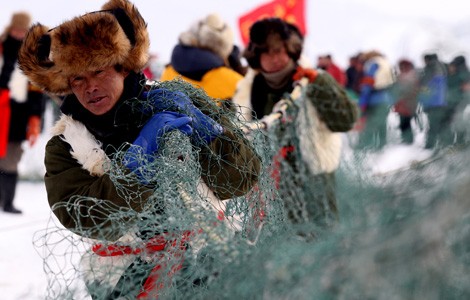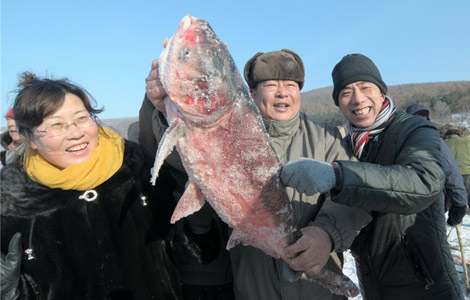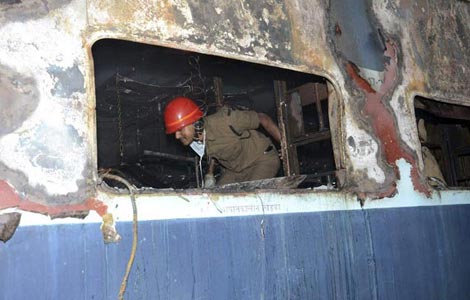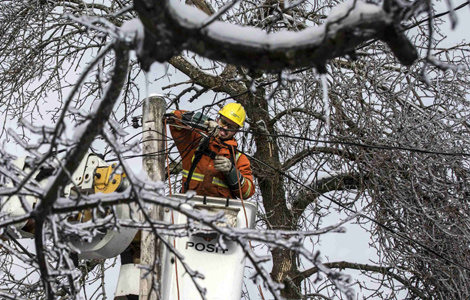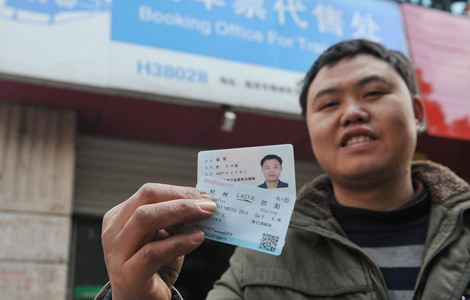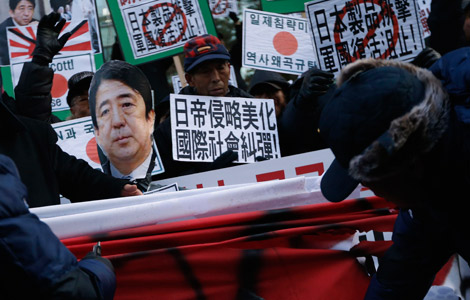3rd high-level official probed
Updated: 2013-12-29 23:51
By Hou Liqiang (China Daily)
|
||||||||
Government shows determination to root out corruption, experts say
A senior Sichuan political adviser is being investigated for "suspected serious law and discipline violations", the country's top anti-graft watchdog announced on Sunday.The Central Commission for Discipline Inspection of the Communist Party of China announced its investigation of Li Chongxi, chairman of the Sichuan Provincial Committee of the Chinese People's Political Consultative Conference, on Sunday morning.
No details of the suspected corruption were given.
Li, 62, is the third ministerial-level official to be investigated for corruption since the CPC elected its new leadership in November 2012, following Jiang Jiemin, former head of the State-owned Assets Supervision and Administration Commission, and Li Dongsheng, former vice-minister of the Ministry of Public Security.
At least another 13 senior officials at the vice-ministerial level have been investigated for corruption since the new leadership came into power.
The announcement on Li came only four days after the Party mapped out a five-year guideline to help check the spread of corruption, vowing to fight graft firmly and to maintain its "high-handed posture" over the next five years.
"The investigation of Li shows once again that the central government fights not only flies (low-level officials) but also tigers (senior officials)," said Yang Weidong, professor of the Chinese Academy of Governance, adding that this shows the central government's determination to combat corruption.
The crackdown on senior officials, who can cause more harm if corrupt than lower officials, strengthens public confidence in the anti-corruption fight. More importance should be given to preventing corruption, Yang said.
Without such a mechanism, the crackdown can only prevent corruption for a short period, he said.
A system to prevent officials from personally benefiting from "official appointments" and "power abuse" should be created to root out corruption opportunities, Yang added.
Li Gang, 36, a migrant worker from Hebei province, said he has been paying constant attention to the anti-corruption news and is thrilled to see the attention the central government has attached to such work.
"Fewer corrupt officials means more good officials who perform real deeds for the public, which is good," Li said.
Li said, however, he hopes the government will also pay more attention to anti-corruption at the grassroots level, where officials have more contact with the general public.
According to a report released by the Chinese Academy of Social Sciences on Thursday, 75.3 percent of those polled think China faces serious corruption, up 1.1 percent from 2011.
The report also showed a rise in people's confidence in anti-corruption measures after the new leadership came into power.
In a poll conducted in 2011, 57.6 percent of respondents were confident about anti-corruption measures. That ratio rose to 73.7 in the latest survey.
About 50 percent of those polled think the work style of officials has improved since the introduction of "eight-point" rules in early December, which asked CPC officials to reduce pomp, ceremony, bureaucratic visits and meetings.
The Central Commission for Discipline Inspection said on Thursday that a total of 25,855 people have been punished for breaches of the "eight-point" rules, according to Xinhua News Agency.
The report said 54.7 percent of those polled believe "banquets at public expense" have reduced, 50.8 percent think there is less "extravagance and waste", and 50.5 percent see a decline in "above-standard receptions".
Also on Sunday, the Organization Department of the CPC Central Committee issued a notification asking leading cadres to report their personal information faithfully.
The notification vowed spot-checks of leading cadres' reports made since this year. The checks will be made at random every year.
The notification also said more importance would be attached to those cadres who are to be promoted and those who are listed as reserve cadres.
A stipulation on leading cadres' reports of personal information was published in 2010 by the CPC central committee and the State Council. The stipulation required leading officials to declare their assets and marital status. Any immigration by their spouses and children should also be declared.
Most Viewed
Editor's Picks

|

|

|

|

|

|
Today's Top News
Auto industry rolls through ’13 for China, US
Outrage still festers over Abe shrine visit
Suicide bomber kills 16 at Russian train station
Li says economy stable in 2014
Bigger role considered in the Arctic
3rd high-level official probed
Abe stepping up military agenda
NPO rules expected in 2014
US Weekly

|

|
